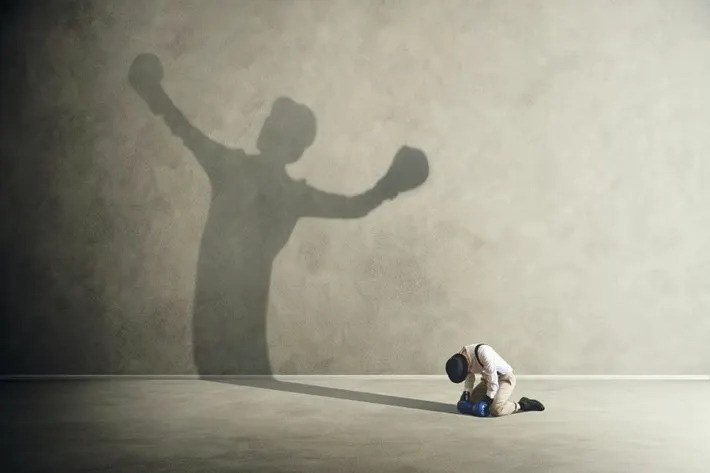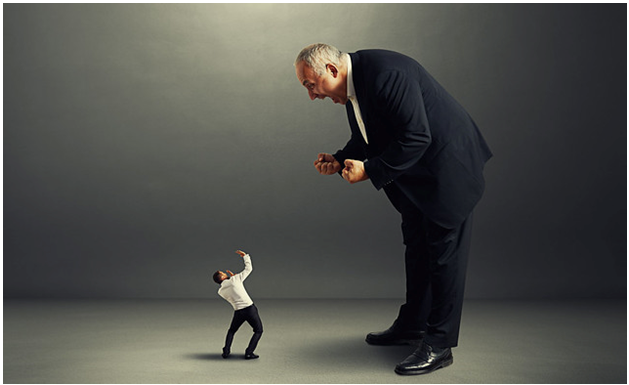
Like any other young person, Gen Z is also subject to peer pressure, and no one wants to fail on their journey - Photo: Forbes
According to McKinsey research, Generation Z faces unprecedented mental health challenges. They went through their college years when the COVID-19 pandemic broke out fiercely, entering the labor market with a series of labels about a generation that quit their jobs in silence, lacked capacity, and had too many demands...
Above all, like any other young person, they are also subject to peer pressure, and no one wants to fail on their journey.
Build a safe environment for failure
Business leaders need to help Generation Z have a more positive perspective on failure, thereby working more confidently.
As long as each person needs to learn after each failure, failure will be an opportunity to accumulate experience for the long road ahead, instead of being an obstacle that hinders all efforts.
Leaders can create an environment of “healthy failure” and psychological safety. This is a space that allows and encourages team members to present mistakes for discussion and learning, rather than nagging and criticizing each other.
The more conversations we have about mistakes and failures, lessons learned, and better solutions that come out of each incident, the safer and more resilient our company culture becomes, which benefits and motivates not only Gen Z but all employees.
It is also important to understand the science of failure, from psychological research to practical lessons from businesses and individuals. Each generation may have a different perspective on failure, so avoid generalizing perspectives.
Every leader also needs to take the time to listen and talk with employees, sharing their own experiences of failure. Not to mention, others think that their leaders are "magical" individuals who never make mistakes, and the pressure to be wrong increases.

Some people believe that their leaders are "magical" individuals who never make mistakes, and are increasingly pressured to be wrong - Photo: Disaster Avoidance Experts
Learn to bounce back from failure
For young people, it is important to understand that failure is a natural part of growing and developing professionally. Even if we do not fail, it is likely that we are not growing or learning optimally.
We should learn to take advantage of each failure experience to learn and improve ourselves instead of being immersed in pain and giving up. That is the way to fail successfully.
Learning to accept constructive criticism and feedback from managers and peers, as well as suggestions for improvement, is a normal part of the progression process, and is how companies support the long-term development of their employees.
When it comes to failure, personal experience is important. Many people are afraid to try new things, because they are afraid of making mistakes themselves. However, besides learning from other people's mistakes, doing it yourself and failing will force each person to find a way to handle it, understand the problem more deeply and ultimately find a better solution.
Also, build mental resilience, which is the brain's ability to learn and adapt, which is activated in response to challenges and stresses such as failure.
In fact, failure creates the neurochemical state necessary for learning. You can actively rewire your thinking to create positive habits when you fail.
However, the neurochemicals that promote neuroplasticity can also cause feelings of distress, frustration, and loss of motivation.
You need to understand your own limitations, assess your current abilities, and find ways to manage negative emotions caused by failure. Besides being patient, you should be tolerant and learn to forgive yourself even if no one around you understands you.
Failure is a great fear
According to Forbes magazine, failure is also ranked as one of the negative events that anyone can face. On top of that, the perception of failure can impact many types of mental health disorders.
About three-quarters of managers find Gen Z workers more difficult to work with than other generations. Nearly three in 10 Gen Z employees say they struggle with mental health issues because of their bosses.
Most new employees are afraid of making mistakes, especially after moving from an online environment caused by COVID-19 to an in-person office environment, interacting with older generations and shouldering a lot of prejudice.
Source






![[Photo] Visiting Cu Chi Tunnels - a heroic underground feat](https://vstatic.vietnam.vn/vietnam/resource/IMAGE/2025/4/8/06cb489403514b878768dd7262daba0b)

















































































Comment (0)